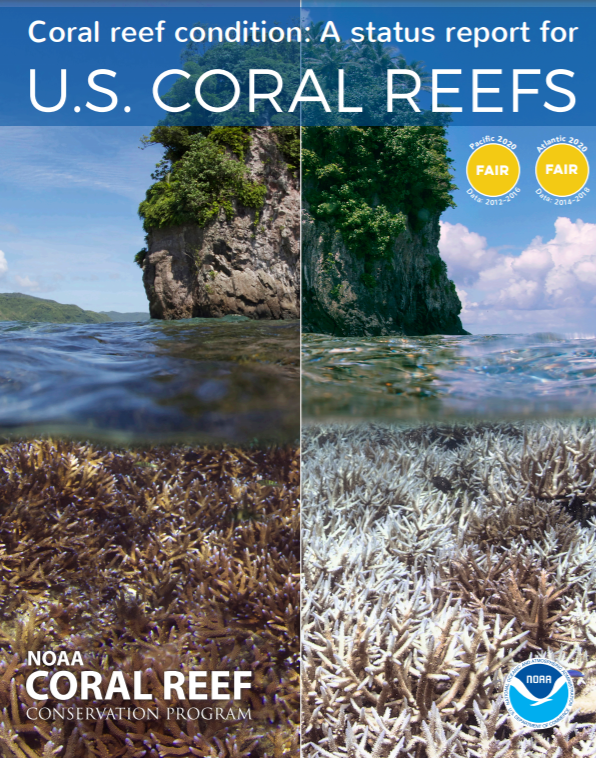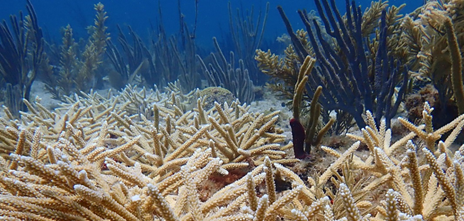
NCCOS scientists contributed to the newly released national status report on U.S. coral reefs. Drawing on data from 2012–2018, the report provides a high-level overview of the range of coral reef conditions for all U.S. coral reef jurisdictions in the Pacific, Atlantic, Caribbean, and Gulf of Mexico.
The report highlights three main messages: 1) Overall, U.S. coral reefs are in fair condition, but declining and vulnerable, 2) impacts from climate change are the greatest threat to coral reefs globally, and 3) coral reefs adjacent to highly populated areas are more degraded than coral reefs adjacent to remote areas.
The scores are denoted as “very good,” “good,” “fair,” “impaired,” and “critical.” The report was based on four categories when assigning a score: corals and algae abundance, reef fish populations, influence of climate on coral reefs, and human connections to reefs. The report places in context nine previously-released jurisdictional status reports into one synthesized national status report.
The report offers some good news: there are U.S. coral reefs with a “Good” score. Most U.S. coral reefs received a “Fair” score. Where there is an “Impaired” score, NOAA and partners have initiatives in place to help change the trajectory of coral reef health, such as restoring coral populations and reducing land-based sources of pollution.
The Coral Reef Condition: A Status Report for U.S. Coral Reefs publication was developed by NOAA’s National Coral Reef Monitoring Program and the University of Maryland Center for Environmental Science’s Integration and Application Network. NCCOS Marine Spatial Ecology Division scientists contributing to the report are Shay Viehman and Sarah Groves (Coastal Resilience Team), and Chloe Fleming and Kimberly Edwards (Biogeography Team).

